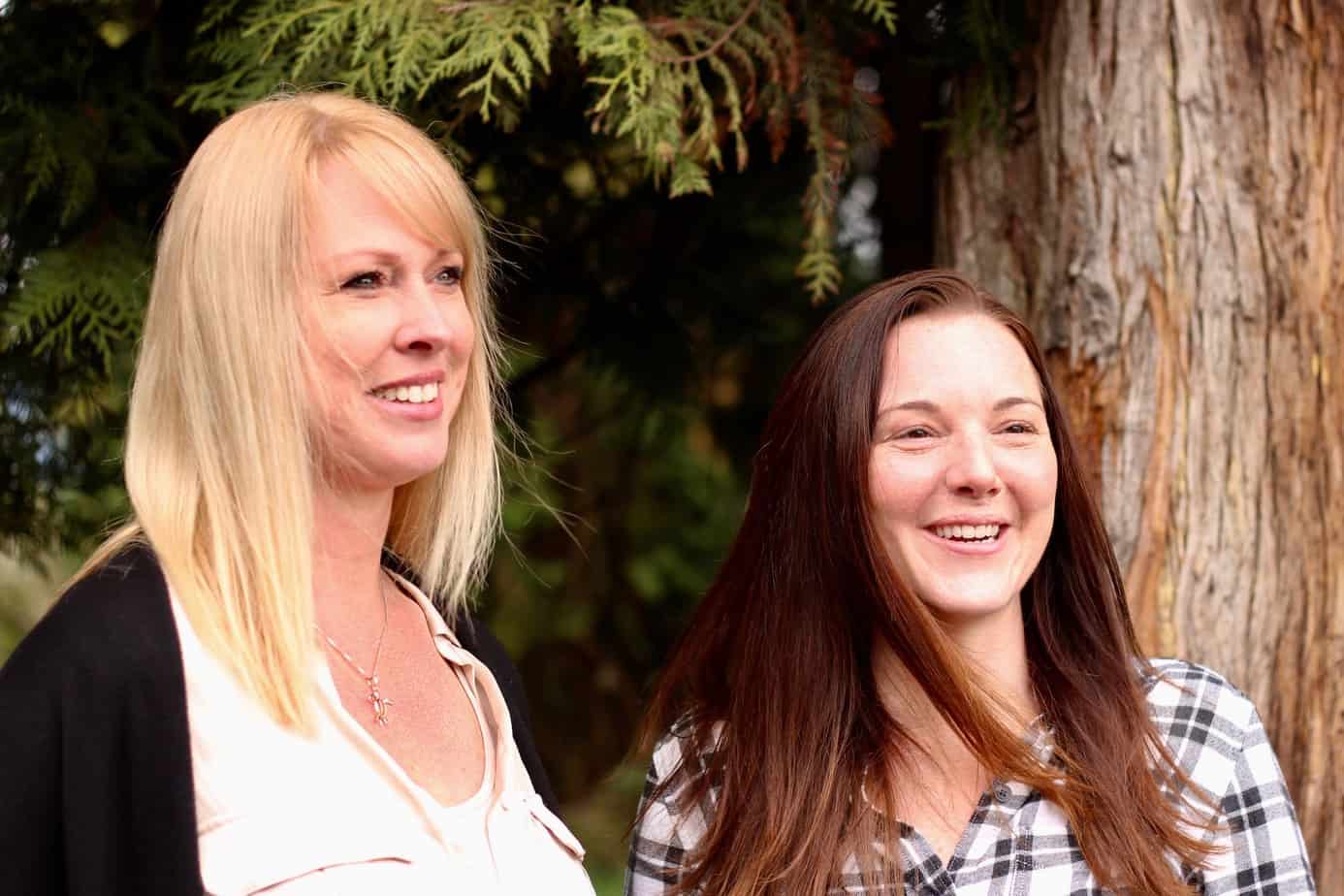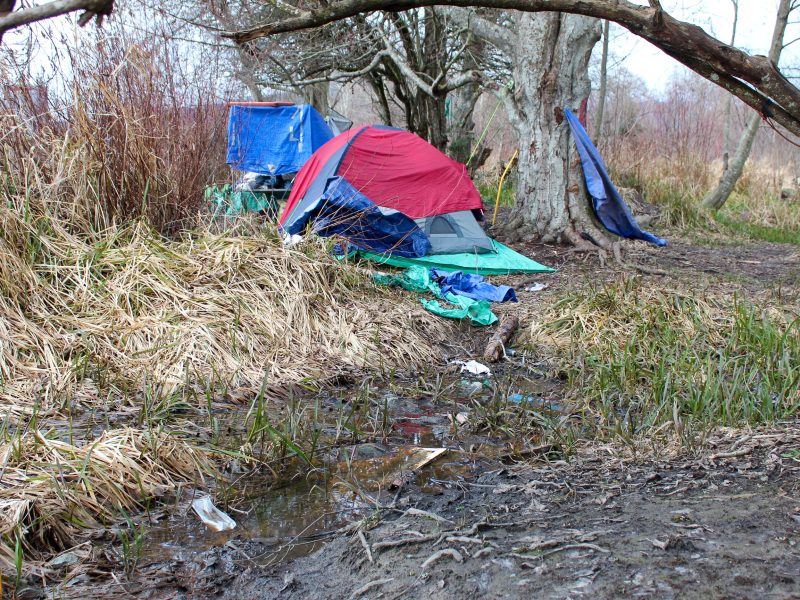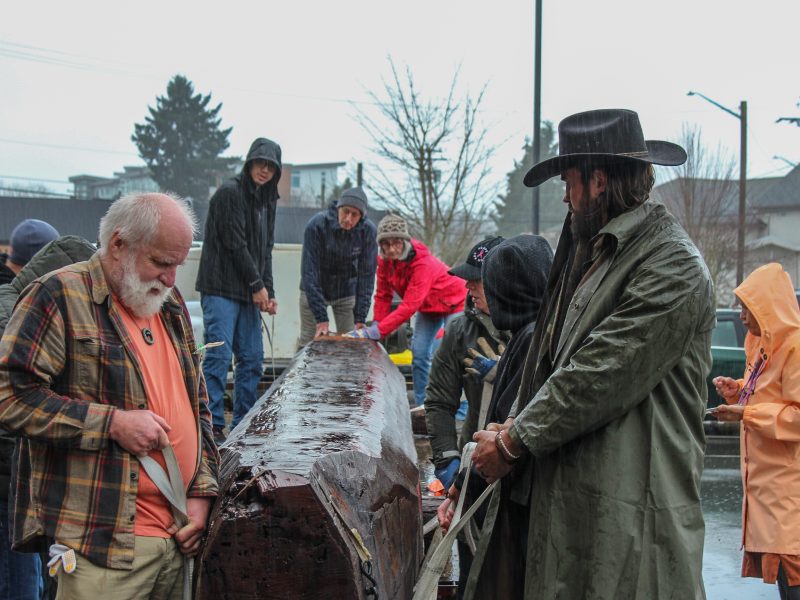
This is from the Cowichan Valley’s weekly newsletter. If you like what you’re reading, help grow this community by encouraging your friends to subscribe.
The last several weeks, I’ve been digging into mental health and addictions in the Cowichan Valley. One of the things I’ve learned from you is that it’s not enough just to focus on the extreme examples of suffering in our community; It’s just as important to interrogate the everyday struggles that affect many of us. And everywhere I turn people are telling me that indicators of struggle are up, particularly in the past three years or so. I’ve heard that referrals for youth mental health services are up, that food bank visits are up, that calls to police to respond to people in mental health crisis are up.
What’s going on here? It feels like something big is happening in our community, and we’ve yet to step back and look at the big picture. Are we too caught up in our individual problems to see how our struggles might be connected?
When I look back at my life three years ago, it’s easy to see ways that it was both easier and harder than it is today. My partner and I were renting the upper floor of a house in Lake Cowichan for $850 a month. I worked from home, writing science news for a startup media company based in New York. My income, at an attractive exchange rate, was comfortable enough that I managed to fully pay off my student loans.
I was also isolated. I hadn’t yet realized how much community I had left behind when I moved away from Whitehorse, Yukon the year before, or how much effort it would take to make new connections here. I was just short of my 30th birthday, and couldn’t figure out why moving to Vancouver Island wasn’t the dream I had imagined it would be.

My life has changed a lot in three years. My partner and I got a dog — a true joy and blessing. I was laid off from that job, and went through periods of unemployment and underemployment. We moved twice, forced out when the landlord wanted to sell or occupy the residence. Tired of hustling for rentals, my partner and I bought a house that we love in Youbou, which — like many in our generation — would not have been possible without help from our parents. Our mortgage payments are more than twice what we paid in Lake Cowichan for rent, and the extra costs of home ownership often leave us stretched. My mom died — she took her own life. My grandmother died almost exactly a year later. Several of the people closest to me have been through periods of mental health distress. My own mental health has been up and down; for the most part I’ve managed to hang on.
I share all this not just so you can know me a little better. I share it because I no longer believe that we are each alone in our struggles: My story is unique but not extraordinary. All kinds of signs point to life in Cowichan being more difficult, from the rising proportion of income spent on housing, to the percentage of the population with low incomes.
It’s no wonder then that so many are touched by mental health struggle. Mental health and addictions issues affect one in five Canadians every year, and half of us experience a period of mental illness by age 40. One Ontario study found that the financial burden of mental illness on society is 1.5 times that of all cancers combined, and seven times that of all infectious diseases combined. The Mental Health Commission of Canada estimates that mental illness and addictions costs $50 billion annually in Canada.
These are big, scary statistics. But I believe we have an opportunity to dig into the ways our society is structured to make us unwell and keep us apart. I know we can learn to connect more, to better hold each other up.
Despite my struggles, it’s clear from where I sit now that I’m happier and healthier than I was three years ago. Having stable housing is huge. The other big part has been my employment with The Discourse. In addition to having an amazing team of colleagues based in Vancouver, this work gets me out in the Cowichan Valley community, learning about the place where I live and building connections with people who live here. I get feedback from the community that my work here is valued. I can’t overstate what this has done for my sense of purpose and belonging.
From what you’ve seen in your life and your community, has life in the Cowichan Valley become harder in recent years? If it has, why do you think this might be? Where do you see solutions; where do you see hope?
Send me an email — I would love to hear your thoughts.
Spotlight

Cowichan Valley Youth Services in Duncan offers free counselling to youth 13 to 19 years old and their families, among other services and programs. But executive director Michelle Bell says the agency is struggling to keep up with surging demand for the service.
“We’re drowning,” she says. Counsellors’ caseloads are overloaded, and youth are sitting on a wait list for up to three months. Some of those waiting are in urgent crisis, including youth considered at risk of suicide. Intakes for youth in mental health distress went up 37 percent between 2015 and 2018, with 221 referrals last year, according to statistics shared with The Discourse. Michelle says her agency has seen increased demand and rising costs, including rent that’s up 300 percent since 2001. Meanwhile, funding increases haven’t even kept up with inflation.
But what’s keeping it together is a committed and dedicated team, driven by the fact that they see their work improving the lives of youth and families in the community, she says.
Heather May-Conrad, who started on the counselling team last year, says part of what drives her is working with families to improve their relationships with each other. “Family life is complicated. It’s complex, and sometimes we don’t have a good roadmap for it. Sometimes we need someone to help us figure that out.”
With some help, things get better, she says. “They go off and they’re able to communicate with each other and they’re able to recognize when things aren’t working and they need help with it. It gives everybody a voice in the family.”
Witnessing that progress keeps Heather going. “I really enjoy seeing families rebuild and repair their relationships with each other,” she says. “That’s a soul-filling part of this job.”
News of the week
- Riot Brewing Co. is struggling to stay afloat, the Chemainus Valley Courier confirmed. Community members gathered at the brewery this week to brainstorm solutions, according to a Facebook post.
-
Cowichan Valley MLA Sonia Furstenau drew attention to Cowichan’s overdose crisis in the legislature this week. B.C.’s Minister of Mental Health and Addictions, Judy Darcy, spoke to various initiatives to tackle the problem, including plans to expand access to medication-assisted treatment for people with opioid use disorders.
-
The Municipality of North Cowichan will consider a zoning amendment to allow the winter women’s shelter to operate year-round, the Cowichan Valley Citizen reports. Due to ongoing need, the shelter continues to operate, despite a temporary use permit that expired at the end of March.
-
A 15,000-pound red cedar tree was delivered to the Quw’utsun Cultural Centre’s carving shed this week, the Cowichan Valley Citizen reports. Carver Luke Marston will lead Cowichan youth in a project to transform the log into a seaworthy canoe as part of Lalum’utul Smun’eem Child and Family Services’ Youth Engagement Program.
Let’s gather
- April 12: Visit the Island Savings Centre for an evening of family-friendly crafts and activities from different cultures. The free event, hosted by the Cowichan Intercultural Society, will feature origami, Tai Chi, Chinese calligraphy, First Nations crafts, cultural dances and more.
- April 13: Join Cowichan Green Community for the grand opening of the reFRESH Cowichan Marketplace in downtown Duncan. The new storefront sells food that would otherwise go to waste, at discount prices.
- April 14: Help clean up Mill Bay Beach Sunday and take home a tree to call your own. The planet will thank you twice!
- April 15: Join the Pacific Salmon Foundation for an update and community discussion of the latest science on chinook and coho salmon mortality in the Salish Sea, and what’s next for salmon recovery efforts. [end]
This is from the Cowichan Valley’s weekly newsletter. If you like what you’re reading, help grow this community by encouraging your friends to subscribe.



